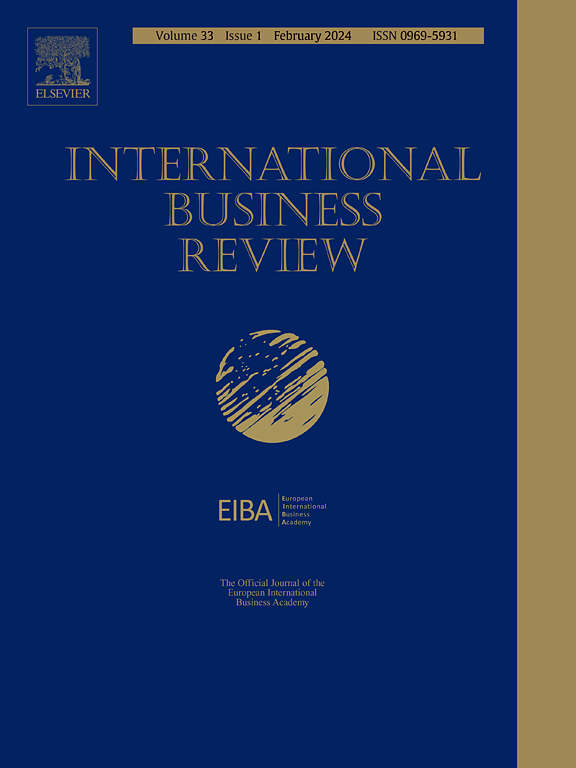A configurational analysis of internationalization, absorptive capacity, and resource-based factors explaining firms’ innovation performance
IF 5.9
1区 管理学
Q1 BUSINESS
引用次数: 0
Abstract
This study adopts a configurational approach to examine how firm internationalization leads to innovation through the learning-by-exporting (LBE) effect. It investigates how combinations of internationalization dimensions—earliness, market scope, and intensity—along with absorptive capacity and resource-based factors, influence innovation outcomes. Drawing on the dynamic capabilities perspective, we argue that LBE necessitates all three elements but recognize that simultaneously pursuing early exports, broad market scope, and innovation may strain resources and impede LBE. Through a qualitative comparative analysis of 2748 manufacturing firms from 2007 to 2014, this study captures the causal complexity of LBE factors, including possible equifinal and asymmetric relationships. Our findings provide valuable insights for researchers, particularly highlighting the significance of internationalization dimensions in the context of LBE. They also offer practical implications for managers regarding the need to enhance exporters' absorptive capacity and secure resources for these various activities, as well as for export- and innovation-promotion organizations to align their efforts.
国际化、吸收能力和资源基础因素对企业创新绩效的构形分析
本研究采用结构分析方法,考察企业国际化如何通过出口学习效应(LBE)引导创新。它研究了国际化维度——早期、市场范围和强度——以及吸收能力和资源基础因素的组合如何影响创新成果。根据动态能力的观点,我们认为LBE需要这三个要素,但同时追求早期出口、广阔的市场范围和创新可能会使资源紧张并阻碍LBE。本研究通过对2748家制造业企业2007 - 2014年的定性比较分析,揭示了LBE因素的因果复杂性,包括可能的等量关系和不对称关系。我们的研究结果为研究人员提供了有价值的见解,特别是强调了国际化维度在LBE背景下的重要性。它们还为管理人员提供了实际意义,说明需要提高出口商的吸收能力和为这些各种活动获得资源,并使促进出口和创新的组织协调其努力。
本文章由计算机程序翻译,如有差异,请以英文原文为准。
求助全文
约1分钟内获得全文
求助全文
来源期刊

International Business Review
BUSINESS-
CiteScore
14.10
自引率
6.90%
发文量
95
审稿时长
62 days
期刊介绍:
The International Business Review (IBR) stands as a premier international journal within the realm of international business and proudly serves as the official publication of the European International Business Academy (EIBA). This esteemed journal publishes original and insightful papers addressing the theory and practice of international business, encompassing a broad spectrum of topics such as firms' internationalization strategies, cross-border management of operations, and comparative studies of business environments across different countries. In essence, IBR is dedicated to disseminating research that informs the international operations of firms, whether they are SMEs or large MNEs, and guides the actions of policymakers in both home and host countries. The journal warmly welcomes conceptual papers, empirical studies, and review articles, fostering contributions from various disciplines including strategy, finance, management, marketing, economics, HRM, and organizational studies. IBR embraces methodological diversity, with equal openness to papers utilizing quantitative, qualitative, or mixed-method approaches.
 求助内容:
求助内容: 应助结果提醒方式:
应助结果提醒方式:


